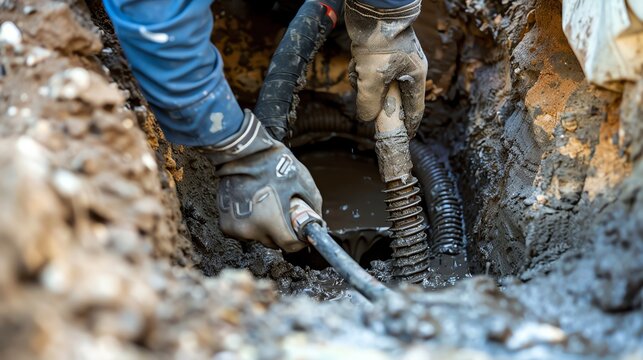Blocked drains are a common household problem, and if you’re in Reading, you may have encountered this issue more than once. Whether it’s a slow-draining sink, standing water in the shower, or a full-blown sewage backup, a blocked drain can disrupt your day. In this blog, we’ll explore the causes of blocked drains Reading, how to prevent them, and the steps to take if you find yourself dealing with one.
Common Causes of Blocked Drains
- Build-up of Grease and Food Waste Kitchen sinks often suffer from clogs due to the accumulation of grease, oils, and food debris. When you pour fats down the drain, they can solidify as they cool, gradually forming a sticky layer that attracts other particles. Over time, this leads to a blockage.
- Hair and Soap Scum Bathroom drains, especially in showers and bathtubs, are prime spots for blockages caused by hair and soap residue. Hair can easily wrap around pipe joints and combine with soap scum to create a solid mass that restricts water flow.
- Foreign Objects Toilets can become blocked when non-flushable items, like wet wipes, sanitary products, or too much toilet paper, are flushed down. These materials don’t break down as easily as toilet paper, resulting in clogs.
- Tree Roots If you live in an area with older plumbing systems, tree roots can invade underground pipes. These roots are drawn to the moisture and can grow into your pipes, causing blockages or even breaking them.
- Broken or Collapsed Pipes Over time, drains can deteriorate due to age, soil movement, or poor installation. Damaged pipes restrict water flow and can cause leaks or blockages.
How to Prevent Blocked Drains
- Be Mindful of What Goes Down the Drain Avoid pouring grease, oil, or large food particles into kitchen sinks. Use a sink strainer to catch food debris, and dispose of oil and grease in a container rather than down the drain.
- Use Drain Covers Hair and soap scum can be kept at bay with the use of simple drain covers in your showers and sinks. These inexpensive tools will help prevent blockages by catching debris before it enters the pipes.
- Limit Toilet Flushing to Toilet Paper Only Remind family members and guests that only toilet paper should be flushed. Place a bin in the bathroom for other items like wet wipes or sanitary products.
- Regular Drain Maintenance Regular cleaning and maintenance of your drains can prevent blockages from forming. Use a mixture of hot water, baking soda, and vinegar to break down organic matter in your pipes. Alternatively, consider hiring a professional for an annual check-up of your plumbing system.
What to Do if You Have a Blocked Drain
- Try a Plunger For minor clogs, a plunger can often do the trick. Create a tight seal around the drain and plunge up and down several times. This can help dislodge small blockages, allowing water to flow freely.
- Use a Drain Snake If plunging doesn’t work, a drain snake (or auger) might help. These flexible tools can reach into the pipes to break up or retrieve the blockage. You can find drain snakes at most hardware stores.
- Natural Cleaning Solutions For kitchen sinks, a mix of hot water, baking soda, and vinegar can break down grease and small clogs. Pour the baking soda and vinegar down the drain, wait for the fizzing to stop, then flush with hot water.
- Call a Professional If your efforts don’t resolve the issue, it’s best to call a professional plumber. They have the tools and expertise to deal with more severe blockages, such as those caused by tree roots or broken pipes. Professionals can also inspect the plumbing system using a CCTV drain survey to identify the exact cause of the problem.
Blocked Drains in Reading: Local Plumbing Services
If you live in Reading, there are several local plumbing services that specialize in drain unblocking and emergency plumbing. Hiring a professional is always the safest option, especially if you suspect a deeper issue like damaged pipes or tree root intrusion.
Look for a plumber that offers:
- 24/7 emergency services for urgent blockages
- CCTV drain surveys to diagnose the root cause of the problem
- Regular maintenance services to prevent future clogs
Conclusion
Blocked drains are not only inconvenient but can also lead to more severe plumbing issues if left unchecked. By taking preventive measures and being mindful of what you put down your drains, you can reduce the likelihood of a blockage. However, when a problem does arise, quick action and, when necessary, the help of a professional plumber in Reading can save you from costly repairs down the line.
